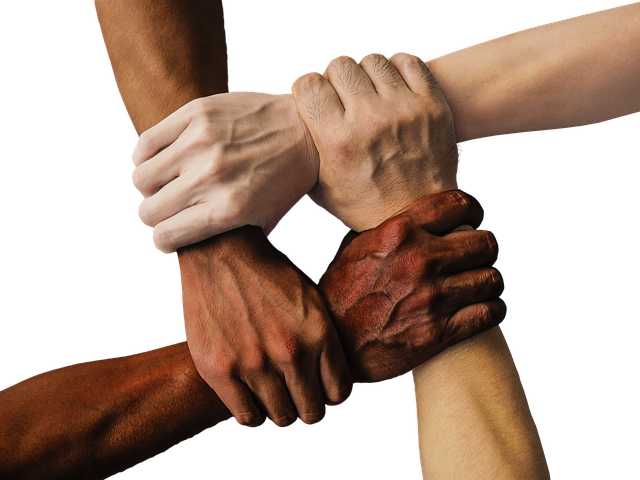Why Relationships Matter in Women’s Lives
Meaningful relationships are more than just social perks they form the backbone of emotional strength, resilience, and personal development for many women. From mental health stability to long term life satisfaction, the impact is both measurable and deeply personal.
Emotional Connection Fuels Resilience
A strong emotional bond can act as a buffer during life’s most stressful moments. Whether it’s a trusted partner, a close friend, or a supportive sisterhood, emotional connection:
Provides a sense of safety during tough times
Reinforces confidence and self worth
Gives women a reliable outlet for expression and emotional release
These connections don’t remove life’s challenges but they make it easier to weather them.
The Science Behind Social Bonds
Research consistently reveals the health benefits of strong social ties. Studies show that:
Social bonds help reduce cortisol (the stress hormone)
Serotonin and oxytocin levels rise with positive relational interactions
Meaningful relationships are associated with decreased depression and anxiety symptoms
Emotional support is not just comforting it’s biochemically beneficial.
Relationships and Personal Growth
Connecting with others allows women to see themselves more clearly. In well nurtured relationships:
Constructive feedback fosters self awareness
Shared experiences promote adaptability, empathy, and reflection
Collaborative problem solving strengthens independence and self trust
When women are seen, heard, and held in healthy relationships, they’re more likely to take risks, pursue goals, and grow into their fullest selves.
Emotional Intimacy and Mental Health
Feeling Seen Fuels Stability
One of the most powerful emotional needs in any relationship is the desire to feel seen and understood. For women, this validation forms a critical pillar of psychological well being. When a woman truly feels acknowledged in her close relationships whether romantic, familial, or platonic it often translates into greater emotional regulation and resilience.
Feeling emotionally recognized builds self trust
Being seen reduces feelings of isolation and emotional fatigue
Consistent validation supports long term mental balance
Deep Connection Lowers Anxiety
Meaningful emotional bonds can directly influence a woman’s ability to manage stress and anxiety. Research shows that individuals with close emotional ties experience fewer symptoms of depression and improved self worth.
Deep connections foster a sense of safety and predictability
Emotional support boosts coping skills in high stress situations
Regular affirmations from close relationships reinforce a positive self image
Tools That Support Emotional Health
Building and maintaining emotional intimacy takes conscious effort but the payoff is significant. Certain practices allow relationships to become safe havens that actively support mental wellness.
Key practices include:
Listening with empathy: Letting others fully express themselves without interruption or judgment
Being vulnerable: Sharing fears, doubts, and hopes to create deeper trust
Offering validation: Acknowledging a partner’s or friend’s feelings, even if you don’t have a solution right away
These habits lay the foundation for emotional intimacy that supports not just connection, but personal growth and healing.
Want to Learn More?
For a deeper dive into how emotional intimacy affects overall well being, explore this related article: Intimacy and Well Being.
Romantic Partnerships and Physical Wellness
Supportive relationships don’t just feel good they show up in your body. Women in stable, respectful romantic partnerships tend to sleep more soundly, recover faster from illness, and have lower risks for cardiovascular issues. It’s not magic; it’s biology responding to emotional safety.
When you’re in a dynamic built on reciprocity and mutual respect not just love your body can actually relax. That means fewer stress hormones flooding your system. Your immune response strengthens. Your heart rate variability (a solid marker of heart health) gets more balanced. All from feeling secure with someone.
Conflict is unavoidable. But how it’s handled shapes your health just as much as the good days do. Arguing with compassion, staying curious instead of combative, and making space for repair these habits help regulate mood and keep your body out of chronic fight or flight mode.
The takeaway: relationships built on respect, communication, and care don’t just help you thrive emotionally they literally support your physical wellness.
Friendships and Lifespan

Here’s the truth: good friends might help you live longer. Study after study has shown that people with strong social ties have better health outcomes and longer lifespans. Close friendships ones built on trust, laughter, and mutual support act as a buffer against the wear and tear of everyday stress. That’s not just feel good fluff. It’s biology. Solid platonic bonds help regulate cortisol, keep blood pressure in check, and improve immune function.
And it’s not just about having friends it’s about actually connecting. Quick emotional check ins, daily texts, or weekly walks matter more than big group dinners once a year. Micro interactions offer real psychological benefits. They remind us we’re seen, that we matter, and that we’re not alone in whatever we’re carrying that day.
So if you’re looking to invest in long term health, don’t skip the lunch date. Make the call. Be the friend who checks in. It’s low effort, high return. Lifespan isn’t just about diet or genetics it’s also about who’s sitting across from you when everything feels like too much.
The Power of Vulnerability
Vulnerability sounds soft, but it’s one of the hardest things to practice. In reality, sharing openly especially when it’s uncomfortable is how growth happens. Taking emotional risks, like speaking your truth or naming your needs, strengthens your sense of self and deepens the connection with others. It’s not about oversharing; it’s about being honest with intent.
Trust doesn’t just appear. It’s built, gradually, through consistent behavior across all relationship types romantic, platonic, family, or work. Trust lives in the small moments: when you follow through, when you listen without turning the conversation back to yourself, when you respect someone’s boundaries even if they’re inconvenient.
The habits people rarely teach you matter most. Set aside real time to connect. That might be a weekly walk, a no phones dinner, or a check in phone call. Name your boundaries before they’re crossed. Make space to talk about hard things when they’re small, instead of waiting for them to explode. These practices aren’t flashy, but over time, they build relationships that last and heal.
When Relationships Harm Well Being
Not all relationships contribute positively to a woman’s well being. In some cases, emotional ties can become sources of stress, anxiety, or even trauma. Recognizing the signs of an unhealthy relationship is crucial for protecting mental and emotional health.
Recognizing Red Flags
It’s not always easy to spot an unhealthy relationship, especially when emotional investment is high. However, there are consistent behaviors that can signal something is off:
Emotional drain: Constant exhaustion after interactions
Control dynamics: One partner dominates decisions or manipulates the other’s behavior
Lack of support: Absence of encouragement, empathy, or emotional presence in challenging times
Disrespect or dismissal: Consistently feeling unheard, devalued, or criticized
If you feel more depleted than nourished after spending time with someone, it might be time to evaluate the cost of staying close.
Rebuilding After Toxic Bonds
Coming out of a harmful relationship leaves psychological marks but it also offers a chance for personal renewal.
Reconnect with yourself: Journaling, therapy, and time for personal reflection can aid healing
Restore trust: Relearn that healthy relationships are possible by engaging with safe, supportive people
Set new boundaries: Define what you will and will not accept moving forward, with clarity and confidence
Healing doesn’t happen overnight, but each step taken toward self restoration strengthens emotional resilience.
Walking Away as Self Care
Ending a relationship can feel like failure, but staying in a destructive dynamic is far more damaging. In some cases, walking away is the most empowered and health affirming choice you can make.
Protect your peace: Emotional safety is a non negotiable foundation for well being
Honor your growth: Choosing yourself over familiar dysfunction marks maturity, not weakness
Open space for better connections: Letting go creates room for relationships that truly nourish and support you
How to Strengthen Relationship Bonds
Stronger connection doesn’t happen by accident it’s built on small, consistent choices. Creating quality time with intention starts by cutting distractions and showing up fully. That means phones down, attention on. This isn’t about grand gestures. It’s about a 20 minute walk without checking messages, or cooking dinner together without the TV on. Presence over perfection.
Active listening is more than nodding along. It means actually hearing your partner or friend and reflecting their emotions back to them. You don’t need a psychology degree. Try: “Sounds like that really frustrated you.” That kind of empathy helps deepen trust fast. It tells the other person: I see you, I get it, I’m with you.
Last, vulnerability is a two way street. Sharing how you’re really doing without dramatics or ego invites closeness. But it doesn’t mean losing your sense of self. Boundaries are as important as openness. When done well, this balance gives relationships breath and resilience rather than burnout or blur.
Explore more on this topic: Intimacy and Well Being


 Edward Strzelecki is a valued article writer at Body Care And Matter, known for his straightforward and accessible approach to health and wellness topics. With a focus on clarity and practicality, Edward's writing provides readers with easy-to-understand information that they can apply in their daily lives.
Edward Strzelecki is a valued article writer at Body Care And Matter, known for his straightforward and accessible approach to health and wellness topics. With a focus on clarity and practicality, Edward's writing provides readers with easy-to-understand information that they can apply in their daily lives.

